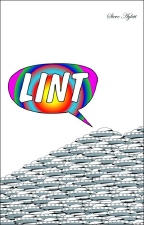Hello again! This will probably be my last blog (I am going to try to get our little brother, Nick, to make a contribution in the next few days), so I thought I would end with another fun Jeff story, a brief review of Kazuo Ishiguro’s An Artist of the Floating World, and a few last words on biodiversity.
First, more about Jeff! At the age of 15, Jeff had certain phobias involving Florida fauna. We lived in a concrete block house which was not well-insulated or fauna-proof. Geckos often scurried in through breaks in mesh screens, and then had to contend with our marauding cats. And daddy long legs would often be found meandering along the walls. But the geckos and docile arachnids did not set off Jeff’s fear...
One evening, I had settled into my bedroom to read, when suddenly a high-pitched screech tore through the house, rattling windows and the glass on my night table. It came from the living room, and it just kept coming. I ran towards the sound, unsure what was making it. One of the cats?? Or had one of the cats captured some poor little creature, which was now screaming for its life? I reached the sliding glass doors that opened onto the living room (built as an addition to the house) and was surprised by the source of the noise. JEFF, crouching cornered by a flying cockroach on the other side of the room! He continued to let out a screech of complete and utter fear as the roach circled above his head. He was obviously afraid to move, for fear of losing sight of it, and he knew that if he stood up, the bug would be that much closer to his head. “Make a run for it, Jeff!” I encouraged, “Come on, you can do it, only a few yards to the kitchen!” He looked at me, eyes large and etched with terror. I could see him rocking a little, as if he was preparing himself to move. And then he did. With flailing arms and pumping legs, Jeff barreled past me, and he just kept going, probably heading for the farthest point away from the “beast”. Now imagine this kind of scene replayed over and over during the course of our stay in that house! And once again, Jeff chose flight.
I haven’t had too much time to read books that aren’t related to my thesis work, but I do try to squeeze in the odd novel now and then. For a few years, I’ve been in a Chinese and Japanese fiction and non-fiction phase. My latest read was a book by Kazuo Ishiguro called An Artist of the Floating World. Ishiguro gained fame for The Remains of the Day, so many of you are probably familiar with his work. I do highly recommend An Artist. Basically, it’s the story of retired artist, Masuji Ono, who begins to describe his life in the years after the war (1948); but Ono’s memories of his past, his growth as an artist, are pivotal to the book. I love the way Ishiguro subtly reveals Masuji Ono’s character to the reader. And we slowly begin to question Ono’s perspective on events. It’s beautifully done. Here’s a brief excerpt, which describes the meaning of the “floating world”:
“[Our teacher’s] influence over us was not, of course, confined merely to the realms of painting. We lived throughout those years almost entirely in accordance with his values and lifestyle, and this entailed spending much time exploring the city’s ‘floating world’—the nighttime world of pleasure, entertainment and drink which formed the backdrop for all our paintings.” (p. 144-145)
I thought I’d conclude with a few more words about biodiversity, by recommending the two books I previously mentioned. Feminism and Evolutionary Biology, edited by Patricia Adair Gowaty, does not specifically address the concept of biodiversity, but I have used this book as a reference. Several chapters would be of interest to a wide readership (not just biologists). In Chapter 4, “The Mask of Theory and the Face of Nature”, Lawton, Garstka, and Hanks do a wonderful job of presenting reinterpretations of sociobiological studies of birds. They reveal biases in research based on competitive individualism and gender that have ultimately shaped theory. Russell Gray’s chapter, “In the Belly of the Monster: Feminism, Developmental Systems, and Evolutionary Explanations”, provides a strong argument for “decentering” the gene in sociobiology.
I’ll just quickly introduce David Takacs’ book, The Idea of Biodiversity: Philosophies of Paradise. Takacs conducted interviews with key contributors to the concept of biodiversity, including Tom Lovejoy, Walter Rosen, and E.O. Wilson (to name a few), and these provide the backbone of the book; this is probably one of the best ways into the subject, if you’re interested. Takacs gives a sound critique of the economic value argument for biodiversity protection.
I’ve enjoyed sharing some of my work and interests on Jeff’s blog, hope you’ve enjoyed it too!






